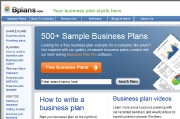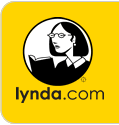To give you some ideas, we've put together a list of sites in several categories, from skills for budding entrepreneurs and learning foreign languages to gourmet cooking and the choreography for Michael Jackson's iconic Thriller dance.
You can always Google for anything you don't see here, but be careful as you click. In researching this story, I ran into many sites that either tried to sell me classes (with little or no real free instruction) or were infested with pop-ups and adware. Antimalware software is a must. (See PC World's free downloads of antimalware programs.)
Get a Business Up and Running
 So you have a business in mind? Start with a business plan that outlines the specifics of how you intend to make money--essential for attracting investors and useful for your own reality checks. BPlans.com, run by PaloAlto Software (creators of Business Plan Pro software) offers dozens of articles, sample plans, and templates to help you get going. This is one of the few sites that, while it does market a product (you need its software to edit a sample plan and use it for your own enterprise), delivers a slew of genuinely useful content for free. (And you can always simply recreate the sample plan using Word and Excel.)
So you have a business in mind? Start with a business plan that outlines the specifics of how you intend to make money--essential for attracting investors and useful for your own reality checks. BPlans.com, run by PaloAlto Software (creators of Business Plan Pro software) offers dozens of articles, sample plans, and templates to help you get going. This is one of the few sites that, while it does market a product (you need its software to edit a sample plan and use it for your own enterprise), delivers a slew of genuinely useful content for free. (And you can always simply recreate the sample plan using Word and Excel.)
Once you've launched your business, you'll have to keep financial records. But even if you use software such as Quickbooks, it's a good idea to understand how basic accounting works. Small business consultant Dave Marshall's Bean Counter site features free tutorials on basic business accounting and bookkeeping.
And because so many aspects of business require presentation skills, it's useful to have a working knowledge of Microsoft's PowerPoint. About.com's Presentation Software site provides a Beginner's Guide to PowerPoint that gathers 11 tutorials to get you going.
 Your business will need a Web site too. You can pay someone a lot of money to create it, but if you would like to dig into the complexities of modern Web design, LearnWebDesignOnline.com is a good place to start, with links to tutorials, videos, and books on all aspects of site creation. Another resource is SiteGround, a Web hosting company that provides an impressive tutorials page for learning about both Web hosting in general and a wide array of specific applications for content management and site creation (WordPress, Dreamweaver, and the like).
Your business will need a Web site too. You can pay someone a lot of money to create it, but if you would like to dig into the complexities of modern Web design, LearnWebDesignOnline.com is a good place to start, with links to tutorials, videos, and books on all aspects of site creation. Another resource is SiteGround, a Web hosting company that provides an impressive tutorials page for learning about both Web hosting in general and a wide array of specific applications for content management and site creation (WordPress, Dreamweaver, and the like).
If you're interested in putting together a news site, J-Learning.org provides guidance on everything from blogging tools and multimedia creation to SEO and legal issues--all for free.
To help bring visitors to your site, you'll need to learn the basics of search engine optimization (SEO). Search consultants SEOmoz's free Beginners Guide is a good place to start.
Improve Your Tech Skills
Okay, time out for a little self-promotion. For general hardware upgrades, setup instruction, and software tips, look no further than PC World's own How-To page. Organized by category, there's an amazing wealth of guidance (in print, video, and slide shows) for everything from swapping out a PC's processor to getting Microsoft Office to work better.
 However, for professional in-depth training in specific applications, Lynda.com has established itself as the go-to place, with thousands of videos and tutorial files for hundreds of applications. It's not free, but if you're serious about learning a complicated application, its subscription-based fees are a good value. (Read PC World's recent review of Lynda.com.)
However, for professional in-depth training in specific applications, Lynda.com has established itself as the go-to place, with thousands of videos and tutorial files for hundreds of applications. It's not free, but if you're serious about learning a complicated application, its subscription-based fees are a good value. (Read PC World's recent review of Lynda.com.)
Have you ever wanted to explore the mysteries of computer programming? You can find a slew of programming tutorials online, but I like British programmer Alan Gauld's Learning to Program, an online version of a book he's written. It's not particularly slick, but he writes clearly and accessibly, and he uses Python, which experts tell me is a good programming language to start with.

No comments:
Post a Comment